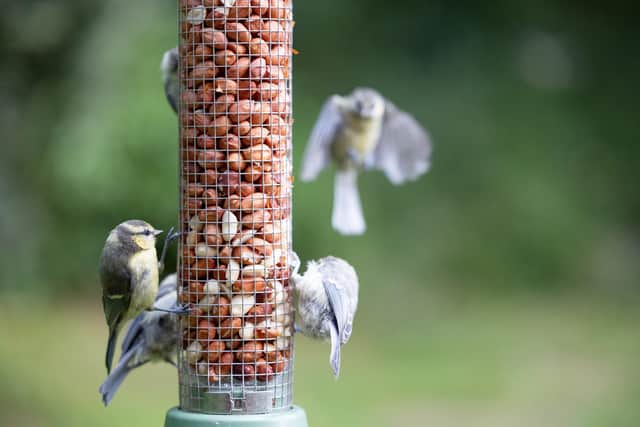Going Green: Get involved and help make a difference


The RSPB run the Big Schools Bird Watch, it’s an amazing initiative which runs from the 8th January to the 19th February annually and it encourages schools and school children to monitor which birds visit their school grounds. https://www.rspb.org.uk/whats-happening/get-ready-for-big-schools-birdwatch
It's a way of engaging children with the natural environment and while it’s targeted at schools, the good news is there are plenty of other projects you can get involved in as a citizen scientist.
Advertisement
Hide AdAdvertisement
Hide AdThe UK centre for ecology and hydrology has a specific page set up with lots of ways you can get involved: https://www.ceh.ac.uk/citizen-science-apps


There are apps you can download where you can contribute findings and let scientists know what you’ve seen. From monitoring pollinating species to looking at dunes to monitoring algae blooms and doing butterfly counts.
There are apps where users can upload sewage releases and log water quality too.
DEFRA have got an Asian hornet watch app too – they’re an invasive species that don’t belong in this country so there’s some serious work that you can contribute to too.
Advertisement
Hide AdAdvertisement
Hide AdThe work done by volunteers is incredibly important too and has a huge impact too.


Last year, around 16,000 volunteers helped to digitise 5.2 million weather observations from the early 1900s in just 16 days. The volunteers digitally transcribed 130 years of handwritten rainfall observations meaning the Met Office records were able to go back a further 26 years to 1836.
Spring Water Watch is another initiative encouraging people to spend 15 minutes watching their local waterway and recording pollution, water quality and wildlife: https://planetpatrol.co/water-watch/
The Wildlife Trust is another great resource to look at if you want to volunteer and donate some time to helping the natural world.
Advertisement
Hide AdAdvertisement
Hide AdThey have both national and regional monitoring programs that rely entirely on volunteers to make them work: https://www.wildlifetrusts.org/citizen-science. From national shoreline monitoring to regional reptile, hedgehog and mammal tracking programs.
The British Ecological Society has a page dedicated to citizen science projects too – both ones you can take part in and international ones you can learn about that are changing the way nature is recorded across the globe. https://www.britishecologicalsociety.org/learning-and-resources/engaging-the-public/citizen-science-hub/
It's easy to feel disconnected with nature and helping the planet sometimes.
We often hear words like climate change next to words like big oil. We think corporations and governments are the only ones who can potentially make seismic changes and sign accords to limit the impacts of living in a warming world with huge global emissions, but the fact is, a lot of people are contributing to projects that have the potential to change things.
If you have the time, becoming a citizen scientist can be hugely empowering.